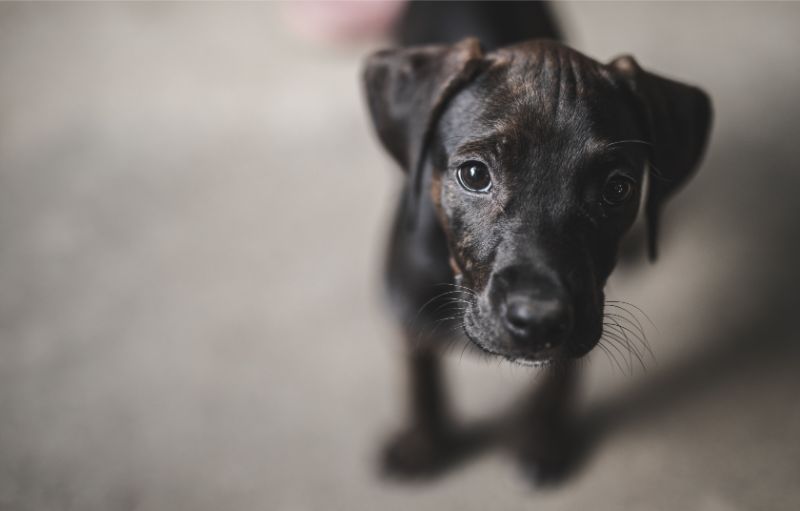The Reverse Sneeze: What It Is And When To Worry

You are minding your own business, when out of nowhere comes the odd, surprising, and utterly weird sound of honking or wheezy snorting from your dog. You run to your pet’s aid, only to discover that he or she is perfectly fine, standing there as though nothing has happened. But what did happen? Do you call us or drop everything and rush your pet in as an emergency?
It is likely that what your pet just experienced is known as paroxysmal respiration, more commonly called “reverse sneezing”. Hearing a reverse sneeze can certainly be alarming, but it’s often a normal occurrence for a dog or cat.
The Anatomy Of The Reverse Sneeze
During a regular sneeze, the nose forcefully releases air. During a reverse sneeze, the nose quickly draws air in. The pet will usually stand still, extend the head and neck, and make snorting or honking sounds. This can last for several seconds or longer – possibly up to a minute or so – but is not harmful. After the pet exhales through the nose, the sneezing usually stops.
The exact origin of a reverse sneeze is not known. However, any irritation in the back of the throat, such as dust, pollen, smoke, odor or other irritation, can produce a bout of reverse sneezing. Allergies, nasal mites, tumors, masses, or a foreign body – such as a foxtail – stuck in the airway, are other problems that can lead to increased reverse sneezing.
What You Can Do
The vast majority of reverse sneezes don’t require medical intervention. You can try calming your pet by stroking its neck or offering water. Typically, once the sneezing bout is over, your pet will be back to normal.
When To Come In
While the occasional reverse sneeze is usually nothing to worry about, if it increases in frequency or becomes worse, it’s best to have your pet seen by your veterinarian. If not properly addressed, some respiratory illnesses can be contagious to other pets, become chronic or even be life-threatening.
Remember, any changes to a pet’s overall respiratory sounds can indicate a problem and should be evaluated. We commonly see and evaluate pets for the following breathing-related concerns:
Upper respiratory infections – In both dogs and cats, sneezing, watery eyes, and a honking cough are typical signs of an upper respiratory infection caused by a virus or bacteria.
Asthma – This chronic irritation to the lungs and airways can cause wheezing, coughing, and labored breathing.
Collapsing trachea – In certain circumstances (trauma, breed, age, weight) a pet’s windpipe can begin to collapse on itself, causing coughing and other breathing difficulties.
Brachycephalic syndrome – Short-nosed dogs and cats (pugs, bulldogs, Persians, etc.) can have trouble breathing or breathe noisily due to their shortened airways.
Heart disease – Heart disease can cause a buildup of fluid in the lungs, resulting in coughing, gasping, and retching.
If you are ever concerned about your pet’s breathing or notice a change in how your pet breathes, please contact us at Lone Tree Veterinary Medical Center right away. It’s always better to have the answers you need to make good decisions for your pet than to worry or just ignore it!



